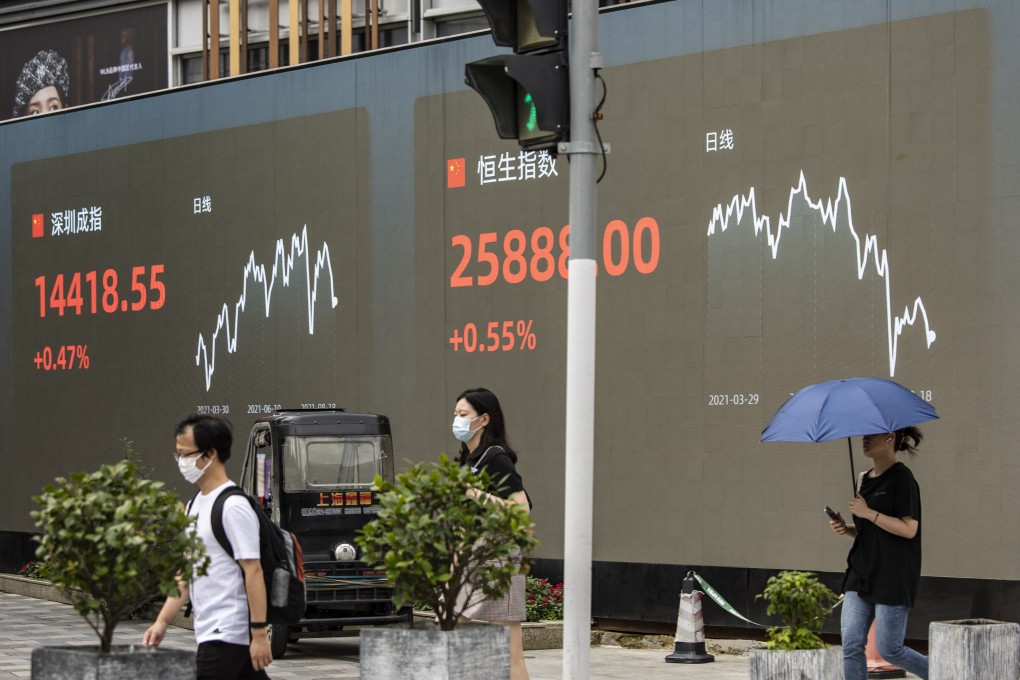Advertisement
China stocks drop to one-week low as Covid-19 outbreak clouds economic revival efforts, even as VIE stance boosts tech start-ups
- Stocks post small declines as China faces its worst Covid-19 outbreak in almost a year, clouding economic recovery outlook
- Clarity on regulations regarding Chinese VIE-type companies in offshore markets seen as aiding tech start-ups
Reading Time:2 minutes
Why you can trust SCMP

Stocks in mainland China dropped to a one-week low on Monday, as traders weighed the economic fallout from a resurgence in Covid-19 cases in several provinces, while the market watchdog clarified its stance on contentious listings in offshore markets.
The Shanghai Composite Index slipped 0.1 per cent to 3,615.97 at the close. The ChiNext gauge of start-ups in Shenzhen also fell by that much. Shenzhen Pacific Union Precision Manufacturing gained 7.9 per cent on its debut on Shanghai’s Star Market.
Consumer staple and technology stocks provided the biggest drag on the benchmark, with their sub indexes falling by at least 0.3 per cent, while consumer discretionary and health care names were the best-performing industry groups.
Advertisement
Trading was light, with the equity markets in Hong Kong and the Stock Connect trading linking them with mainland Chinese bourses shut for a public holiday. Turnover in Shanghai was 16 per cent below its 30-day average for this time of the day, according to Bloomberg data. In Shenzhen, the volume was 10 per cent lower than the average.
“The market is facing the challenges of economic slowdown, growing Covid-19 infections and a vacuum in earnings reports,” said Zhu Bin, a strategist at Southwest Securities. “So sideways trading will probably persist until the annual results season next year.”
Advertisement
Advertisement
Select Voice
Choose your listening speed
Get through articles 2x faster
1.25x
250 WPM
Slow
Average
Fast
1.25x
